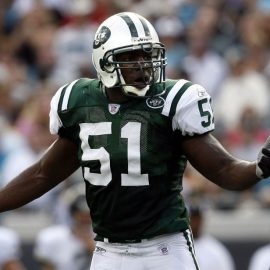The temperature’s certainly rising right now, but come June, South Africa will have full-on football fever. Nine South African cities will add their names to a select list of places that have had the privilege of hosting World Cup matches.
Below, you can find basic information on each of the nine World Cup 2010 host cities, and you can click on the respective name links to find out even more about each city.
Bloemfontein
Bloemfontein, which is the judicial capital of South Africa, is located in central South Africa and is home to the Free State Stadium, which will host six World Cup matches. Bloemfontein is colorfully known as the ‘City of Roses’, and fittingly, the Bloemfontein Orchid House is known as one of the best facilities of its kind in the Southern Hemisphere.
Cape Town
Cape Town, where Cape Town Stadium is located, will host one of the two World Cup semifinals and seven other matches as well. The Western Cape city is South Africa’s second largest city, with a population of nearly three and a half million people. It’s also known as the country’s – and the continent’s – top tourist destination, with its favorable climate ensuring that many World Cup visitors will flock to the city‘s many beaches even in early winter.
Durban
Durban, the site of the Moses Mabhida Stadium, is South Africa’s third largest city, with its population coming in just under Cape Town’s. Durban, on the country’s eastern coast, is the country’s other most popular tourist destination, with one must-see area being the beachfront stretch known as the Golden Mile, where one can find no shortage of things to do and places to spend freely.
Johannesburg
Johannesburg is South Africa’s wealthiest and largest city, with a population of nearly 4,000,000. It is the only host city with multiple host venues, as the city is home to Coca-Cola Park, which hosted the 2009 Confederations Cup final, and Soccer City, which will host the World Cup final on July 11.
Nelspruit
Nelspruit, where the Mbombela Stadium is located, is the smallest of the nine World Cup 2010 host cities. It is situated in northeastern South Africa, and if you’re looking for fruit, it’s your place to be, with many an orange (and other fruits, like mangoes and bananas) grown in the area.
Polokwane
Polokwane, home to the Peter Mokaba Stadium, is located in the northeastern South Africa. The city was officially known by its former name of Pietersburg until being renamed in 2005, and it’s still known to many as Pietersburg. The new city name translates into ‘Place of Safety’, and that’s exactly what will be the objective for the teams who’ll be playing there.
Port Elizabeth
Port Elizabeth is the site of the Nelson Mandela Bay Stadium, which will host the third-place playoff. The city is located on the southeastern coast of South Africa, and it’s one of the country’s major seaports. It’s also known as the watersports capital of South Africa, so visiting fans could perhaps mix their soccer with a little surfing.
Pretoria
Pretoria is the capital of South Africa, and it’s home of the Loftus Versfeld Stadium. The city, located in the Gauteng Province in northern South Africa, has been the country’s administrative capital since before it became an independent republic. World Cup visitors will be kept busy in Pretoria, as the country’s national zoo, the National Zoological Gardens of South Africa, is located there, along with a number parks, malls, and nature reserves.
Rustenburg
The Royal Bafokeng Stadium is located near the northwest city of Rustenburg. Rustenburg is the platinum capital of the world, as nearly three-fourths of the world’s platinum is refined in one single refinery in the city. There are also multiple game reserves in the area, including one in the crater of an extinct volcano.
To learn more about the ten World Cup 2010 venues located in the above cities, check out our World Cup 2010 stadiums section.
Add Sportslens to your Google News Feed!






